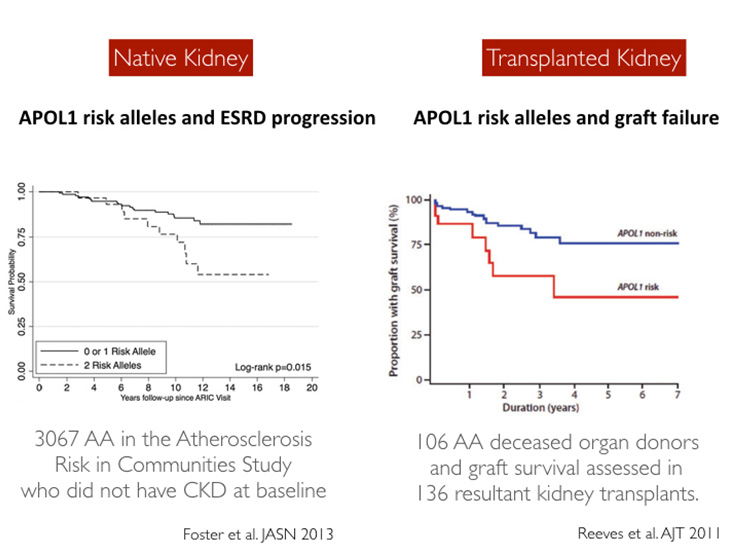Accurate risk assessment is critical when evaluating potential living kidney donors. High-risk kidney APOL1 variants have been associated with end-stage renal disease of multiple causes among African Americans, though the predictive power of these variants in population-based studies is small. No studies have looked at the effect of high-risk APOL1 alleles on donor outcomes, though few transplantation centers in the United States offer screening for APOL1 among African American donors. Screening all African Americans for high risk APOL1 alleles may result in the exclusion of many potential donors (~13% of African Americans). Such an exclusion may have a large effect on the availability of transplants for African Americans, who are already less likely to undergo transplantation. Nephrologists should be prepared to discuss with potential African American donors the relative increase in risk that is likely conferred by carrying 2 high-risk APOL1 alleles and how additional factors such as environmental exposures (eg, viral infections) and/or other genetic susceptibilities may be required for developing kidney disease. In this Perspective, we review the use of APOL1 testing for risk stratification of potential African American kidney donors.
Testing for High-Risk APOL1 Alleles in Potential Living Kidney Donors
Leonardo V. Riella, MD, PhD, and Alice M. Sheridan, MD. Am J Kidney Dis. 2015 Am J Kidney Dis. 2015 Jun 3.

